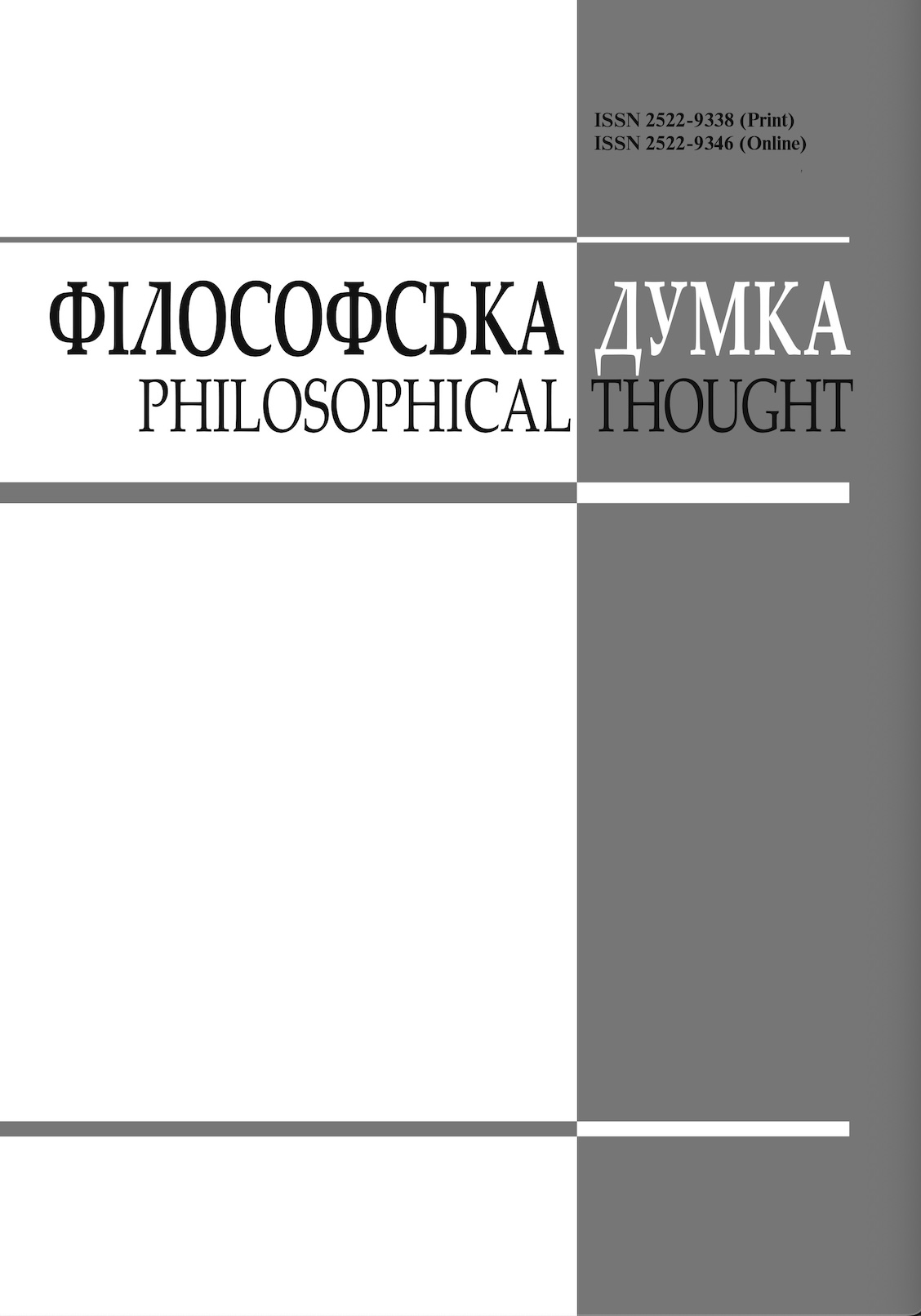MAN AND KNOWLEDGE: at the intersection of modern epistemology, ontology, phenomenology, philosophical anthropology
DOI:
https://doi.org/10.15407/fd2024.04.007Keywords:
epistemology, philosophical anthropology, knowledge, world of knowledge, man, man's world, languageAbstract
The article is dedicated to the study of the relationship between the diversity of the world of knowledge and the world of man. The role of knowledge in human life is shown, the mechanism of its influence on the human world is revealed, the diversity of knowledge in the context of plurality of language images is revealed, the relationship of such philosophical disciplines as epistemology and philosophical anthropology, which deal with the problems of knowledge and man, respectively, is clarified. It is shown that сurrently, scientists are concerned about knowledge that corresponds to all the canons of classical rationality and yet turns out to be deeply irrational in its moral indifference regarding its use. It is substantiated that the times of classical rationalist euphoria from the success of science are over and it is time to reject the enlightenment illusions about science as a ‘panacea’ for all social ills. The discrimination of pre- and out-scientific knowledge does not meet the modern requirements of the new epistemology. Some anthropological and humanistic parameters of cognition are highlighted, and an attempt is made to offer a certain anthropological view of the world as a whole. It is shown that the turn from epistemology to ontology, which took place in the philosophical thought of the twentieth century, does not mean that epistemology has exhausted the possibilities of its development and should withdraw from the historical arena or relegated to the periphery of philosophical research. Moreover, nowadays we are increasingly talking about a cognitive or epistemological turn in philosophy. Classical epistemology is being replaced by various variants of modern non-classical epistemology, such as the cognitive approach, various versions of modern philosophy and sociology of science and anthropology of cognition, evolutionary and social epistemology, etc. The leading feature that defines and unites these areas of non-classical epistemologies is their anthropologisation, which testifies to the inextricable connection of such philosophical disciplines as epistemology and philosophical anthropology.
References
Lorenz, К. (1978). Behind the Mirror: A Search for a Natural History of Human Knowledge. New York: Harcourt Brace Jovanovich.
Gilbert, G.N., Mulkay, M. (1984). Opening Pandora's Box: A Sociological Analysis of Scientists' Discourse. Cambridge: Cambridge University Press.
Heidegger, M. (2000). Uber den Humanismus. Frankfurt am Main: Vittorio Klostermann.
Heidegger, M. (1967). Sein und Zeit. Tübingen: Max Niemeyer.
Bloor, D. (1976). Science and Social Imagery. London.
Dennet, D. (1992). Consciousness Explained. Little, Brown and Co.
Elkana, Y. (1980). Of cunning reason. In: A Festschrift for Robert K. Merton: Science and Social Structure. Ed. by T. Gieryn (pp. 32-42). New York: The New York Academy of Sciences.
https://doi.org/10.1111/j.2164-0947.1980.tb02767.x
Fuller, S. (1988). Social Epistemology. Bloomington.
Garfinkel, H. (1967). Studies in erthnomethodology. Englwood.
Goldman, A. (1999). Knowledge in a Social World. Oxford.
https://doi.org/10.1093/0198238207.001.0001
Knorr-Cetina, K. (1982). Scientific communities or transepistemic arenas of research? Social Studies in Science, 12(2), 101-130
https://doi.org/10.1177/030631282012001005
Lautor, В., Woolgar, S. (1979). Laboratory life: The social construction of scientific facts. Princeton: Princeton University Press.
Schmitt, Fr.F. (Ed.). (2004). Socializing Epistemology: The Social Dimensions of Knowledge. Rowman & Littlefield.
Downloads
-
PDF (Українська)
Downloads: 226
Published
How to Cite
Issue
Section
License
Authors who publish with this journal agree to the following terms:
- Authors retain copyright and grant the journal right of first publication.
- Authors are able to enter into separate, additional contractual arrangements for the non-exclusive distribution of the journal's published version of the work (e.g., post it to an institutional repository or publish it in a book), with an acknowledgement of its initial publication in this journal.
- Authors are permitted and encouraged to post their work online (e.g., in institutional repositories or on their website) prior to and during the submission process, as it can lead to productive exchanges, as well as earlier and greater citation of published work (See The Effect of Open Access).


